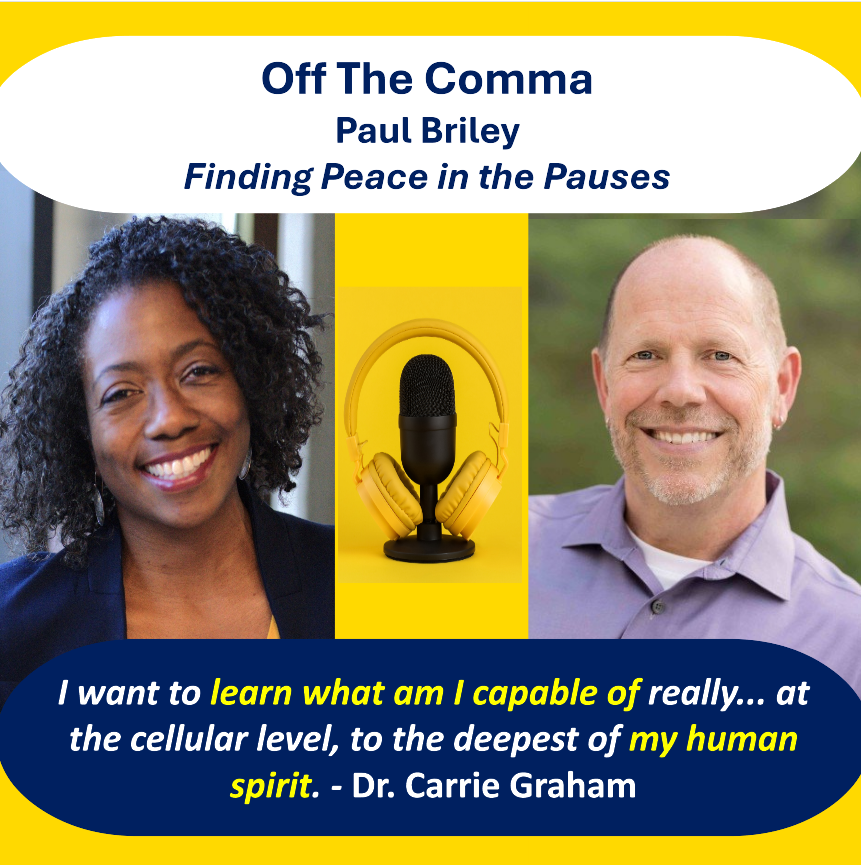
In this deeply personal episode of Off the Comma, host Paul Brierley interviews Dr. Carrie Graham about her current comma - a place of uncertainty and discomfort as she works to more intentionally integrate her faith into her professional life. Dr. Graham shares how her childhood as an only child until age 13, often being the only person of color in educational settings, developed her into an exceptional listener who can hear what people say and what they're not saying. The conversation explores how these early experiences of isolation shaped her ability to support others through training and development programs that truly empower employees by honoring their individual experiences. Dr. Graham discusses the difference between being alone intentionally versus experiencing painful isolation, sharing how she's learned to find peace with uncertainty and discomfort. She reveals her journey from sports medicine and healthcare into adult learning, emphasizing how her natural listening abilities became the foundation for creating professional development plans that focus on understanding learners deeply rather than just delivering content. The episode delves into themes of faith, aging family members, and the evolution that comes with being in one's 50s. Dr. Graham's vulnerability about not knowing the "how" but being clear on her "why" - to uplift others and alleviate isolation - creates a powerful narrative about developing leadership qualities through authentic self-reflection and intentional growth. The conversation concludes with her metaphor for getting off the comma, describing the careful, intentional movement forward despite uncertainty about the destination.
Listen Here > https://www.youtube.com/watch?v=NLzGrgg5Ez8
Dr. Graham emphasizes that effective training and development must begin with deep listening and understanding of learners as complete individuals with rich life experiences, not just demographic categories or job titles. She advocates for authentic integration of personal values and faith into professional work while maintaining respect for others, recognizing that true empowerment of employees comes from addressing their whole selves, including spiritual and emotional needs.
Listen Here > https://www.youtube.com/watch?v=NLzGrgg5Ez8
Read > Psychology Behind Blocks in Training Development
Subscribe > C.A.L.M. Email for weekly industry insights
Get practical tools, strategies, and resources to design and deliver impactful training programs — right in your inbox.